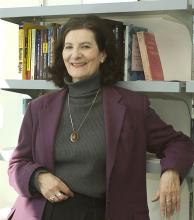What Is It
Many goals are too complex for one person to accomplish alone. Every day, we pool together our planning abilities with those around us to get things done. It’s clear that without shared agency, none of our familiar social institutions could exist. However, philosophers are in disagreement about what shared agency actually entails. What is it about collective action that's unique, and why does it come about? How is acting together sometimes greater than the sum of its parts? John and Ken join forces with Margaret Gilbert from UC Irvine, author of Joint Commitment: How We Make the Social World.
Listening Notes
John and Ken pit Hobbes against Aristotle on what each thought about how natural acting together is. They focus the discussion on what it means for actions to be performed together. Is shared agency simply when people share the same goal in their actions? Ken argues that something is missing about this picture. John goes along with Ken’s objection, but then trips himself up in a philosophical mess.
Margaret Gilbert joins the show. She starts off by explaining how she got interested in the philosophy of social phenomena. John and Margaret work on analyzing the example of two people walking together. Ken asks about the role of explicit agreement, worrying about over-intellectualization. The discussion moves on to cases of interactions within large groups of people. John asks whether such groups of people—like corporations or political parties or nations—can be modeled as unified agents.
Margaret moves on to the binding nature of shared agency: how we are obligated to each other when we make plans together. After a challenge from John, Margaret clarifies that she doesn’t think this sort of obligation is moral. An audience questioner brings in a discussion of biology and evolution. Margaret emphasizes the need to understand what it is that needs to be explained by biology and evolution. Ken wonders what’s distinctive about humans that allow them to share agency. Later, the conversation moves to assessing the role of morality within group action. To close out the show, John presses Margaret on whether the work of philosophers on agency has actually helped us act better.
- Roving Philosophical Report (seek to 6:21): Caitlin Esch documents instances of shared action in the animal world. Biologists feature in the report, examining the mechanisms behind the social nature of insects and chimps.
- Sixty Second Philosopher (seek to 46:29): Ian Shoales explains his colorful experiences with different social groups he’s encountered throughout the years. Hippies, businessmen, and libertarians all make an appearance.
